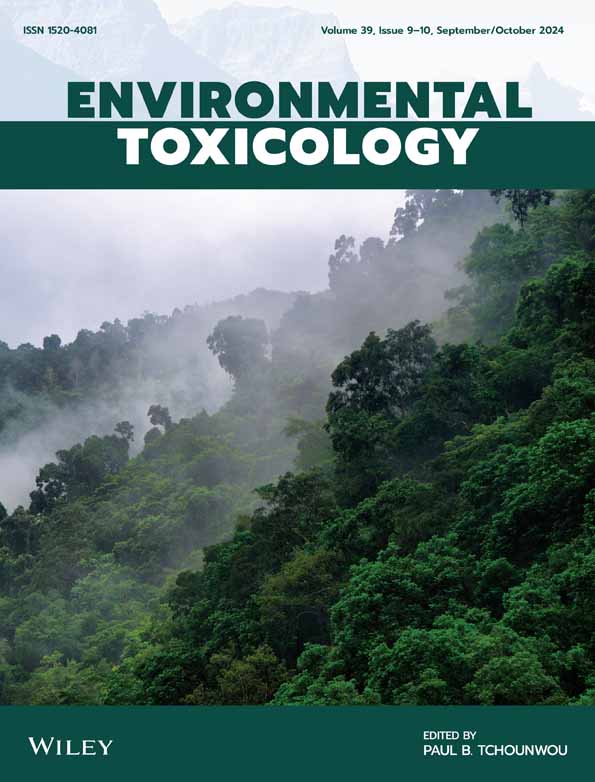麦伐他汀诱导心脏成纤维细胞中 HO-1 的表达:对抗心血管炎症和纤维化的策略
IF 4.4
3区 医学
Q2 ENVIRONMENTAL SCIENCES
引用次数: 0
摘要
众所周知,麦伐他汀(MVS)具有抗炎作用,可能是通过上调血红素加氧酶-1(HO-1)实现的,HO-1 是一种参与细胞保护以防止氧化损伤的酶。然而,MVS 刺激人心脏成纤维细胞(HCFs)中 HO-1 表达的具体过程尚未完全明了。在本研究中,我们发现 MVS 处理可提高 HCFs 中 HO-1 的 mRNA 和蛋白水平。使用 p38 MAPK、JNK1/2 和 FoxO1 的特异性抑制剂以及靶向 NOX2、p47phox、p38、JNK1、FoxO1、Keap1 和 Nrf2 的 siRNA 预处理可抑制这种诱导。MVS 还引发了 ROS 生成并激活了 JNK1/2 和 p38 MAPK,NADPH 氧化酶或 ROS 抑制剂均可减轻这两种作用。此外,MVS 还促进了 FoxO1 和 Nrf2 的磷酸化,p38 MAPK 或 JNK1/2 抑制剂抑制了这种磷酸化。此外,MVS 还能通过 HO-1/CO 通路抑制 TNF-α 诱导的 NF-κB 激活和 HCFs 中血管细胞粘附分子-1(VCAM-1)的表达。总之,MVS 在 HCFs 中诱导 HO-1 的表达是通过两个主要信号通路介导的:NADPH 氧化酶/ROS/p38 MAPK 以及 JNK1/2/FoxO1 和 Nrf2。这项研究阐明了 MVS 通过调节心脏成纤维细胞中的 HO-1 发挥抗炎作用的基本过程。本文章由计算机程序翻译,如有差异,请以英文原文为准。
Mevastatin-Induced HO-1 Expression in Cardiac Fibroblasts: A Strategy to Combat Cardiovascular Inflammation and Fibrosis.
Mevastatin (MVS) is known for its anti-inflammatory effects, potentially achieved by upregulating heme oxygenase-1 (HO-1), an enzyme involved in cytoprotection against oxidative injury. Nonetheless, the specific processes by which MVS stimulates HO-1 expression in human cardiac fibroblasts (HCFs) are not yet fully understood. In this study, we found that MVS treatment increased HO-1 mRNA and protein levels in HCFs. This induction was inhibited by pretreatment with specific inhibitors of p38 MAPK, JNK1/2, and FoxO1, and by siRNAs targeting NOX2, p47phox, p38, JNK1, FoxO1, Keap1, and Nrf2. MVS also triggered ROS generation and activated JNK1/2 and p38 MAPK, both attenuated by NADPH oxidase or ROS inhibitors. Additionally, MVS promoted the phosphorylation of FoxO1 and Nrf2, which was suppressed by p38 MAPK or JNK1/2 inhibitor. Furthermore, MVS inhibited TNF-α-induced NF-κB activation and vascular cell adhesion molecule-1 (VCAM-1) expression via the HO-1/CO pathway in HCFs. In summary, the induction of HO-1 expression in HCFs by MVS is mediated through two primary signaling pathways: NADPH oxidase/ROS/p38 MAPK, and JNK1/2/FoxO1 and Nrf2. This research illuminates the underlying processes through which MVS exerts its anti-inflammatory effects by modulating HO-1 in cardiac fibroblasts.
求助全文
通过发布文献求助,成功后即可免费获取论文全文。
去求助
来源期刊

Environmental Toxicology
环境科学-毒理学
CiteScore
7.10
自引率
8.90%
发文量
261
审稿时长
4.5 months
期刊介绍:
The journal publishes in the areas of toxicity and toxicology of environmental pollutants in air, dust, sediment, soil and water, and natural toxins in the environment.Of particular interest are:
Toxic or biologically disruptive impacts of anthropogenic chemicals such as pharmaceuticals, industrial organics, agricultural chemicals, and by-products such as chlorinated compounds from water disinfection and waste incineration;
Natural toxins and their impacts;
Biotransformation and metabolism of toxigenic compounds, food chains for toxin accumulation or biodegradation;
Assays of toxicity, endocrine disruption, mutagenicity, carcinogenicity, ecosystem impact and health hazard;
Environmental and public health risk assessment, environmental guidelines, environmental policy for toxicants.
 求助内容:
求助内容: 应助结果提醒方式:
应助结果提醒方式:


